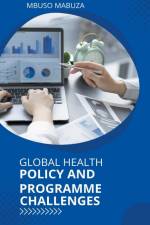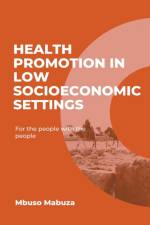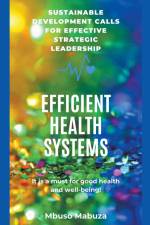av Mbuso Mabuza
337
"Love is a fruit in season at all times, and within reach of every hand. Anyone may gather it and no limit is set." - Mother Teresa of CalcuttaLike what is needed for the practice of any art, the practice of the art of loving needs self-discipline, concentration, and patience. Everyone starts life with high hopes of loving and being loved, knowing and being known, building and being built. This is true not just in a marriage, but also in friendships where there is genuine community, a touching of minds and hearts. But then, for many people, somewhere along the way something goes sour, and more than a few become bewildered, dispirited, defeated, and may be even bitter.The main condition for the achievement of love is the overcoming of one's narcissism. The opposite pole of narcissism is objectivity; it is the faculty to see people and things as they are, objectively, and to be able to separate this objective picture from a picture which is formed by one's desires and fears.Relationships often find their way onto the coaching agenda. That is true, whether you work with individuals or companies. You will get clients who want to have satisfying, fulfilling relationships with other people and are finding it difficult because of conflict with family, partner, friends, or colleagues. Others will be looking for a soul mate, in a relationship that is going through a sticky patch, or getting over one that has failed.Personality predicts how we interact with others, what partners we have, and how happy and lasting our relationships are. At the same time, our experiences in these relationships may affect our personality.It is a myth that if you solve all your problems you will automatically be happy. Your relationship journey is unique. We need to teach couples that they will never solve most of their problems. Conflict is part of a relationship, as long as there is no abusive behaviour.When love lasts, it is not perfect! Love is a journey of continual growth and maturity for all the parties involved. We will hurt others, and others will hurt us. But if you can forgive a fault, love can be restored.Be aware of contempt, criticism, defensiveness, and stonewalling, which are the four main killers of relationships. Persistent contempt (attacking sense of self with intent to insult, or humiliate or discredit, or undermine or hurt or assuming a position of moral superiority) is considered the most destructive of the four killers of relationships. So the key antidote to contempt is expressing your feelings and longings - and expressing them well, creating a path that leads to a culture of appreciation.Evidence shows that both men and women are capable of sustaining intimate partner violence or abusive behaviour by their partners. Mental or emotional abuse, while most common in dating and married relationships, can occur in any relationship including among friends, family members, and co-workers.If you are experiencing any type of abuse, know that you do not deserve to live that way, and reach out for support immediately. Your mental health is a priority for long-term wellbeing!This book discusses the following topics: the art of loving; personality types and love; making the most of your singleness; parenting with emotional intelligence; relationship with parents, in-laws, friends, children, grandchildren, siblings, and other relatives; dealing with challenges in relationships; divorce and its consequences; be aware of abusive behaviour; self-compassion.The book will be of benefit to any person who would like to be empowered about the experience of love in relationship with self and other people.









